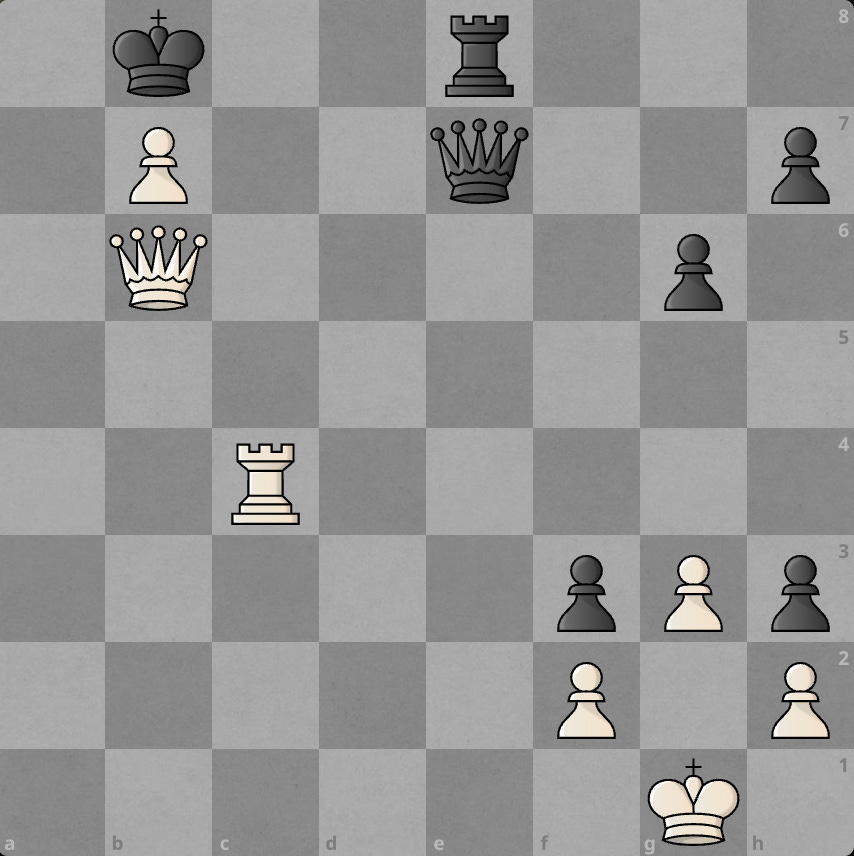Miscellanea + Housekeeping Notes
Ideas, Notes, and a Dog
Unusual format for this week – a couple of bulleted lists rather than a thematic short essay. Plus two housekeeping notes.
First of all, hello to the hundreds of new people here! I hope you’re getting some stuff out of this project / newsletter while I wrestle it into a coherent shape. Here’s why I call it Blundercheck, in case you’re curious.
Second, my next few weeks are busy – I’ll be juggling some live events and travel on top of my usual work – so I’ll take a short break from posting. The next Blundercheck article, Mesolomania, will go live in December.
Seven ideas I’ve been stewing on
Heir gapping– There’s an inherent competitiveness between people close in age. That takes a roughly generational gap to go away and it’s why you should not pick a PhD supervisor that couldn’t be your parent. Many organizations implement heir gaps by accident, which reduces the odds of a coup, internal culture war, and so on, but also hides the necessity of succession planning.
Intermediate advertising – End users have cared for years about how things are made. We’ve gone through the wash several times now. Greenwashing, eco, organic, craft, free-range, ethical, grass-fed, handmade, homemade, new age, traditional… I even know several suppliers of intermediate products like lumber or chemicals that have gotten trapped in this cycle. Time to get out and sell your product for what it is.
Subtle standards – I have a few people in my life that really appreciate music. They have a higher bar for what they listen to. Not like “Ugh, Taylor Swift is too mainstream”. Musical taste is a near-mathematical literacy, whether it’s natural or developed through education. Food is like that too, but chemically. Furthermore, good music and food shouldn’t try to trick you. I’ve been trying (leisurely) to level up the depth and honesty of the things I listen to. Setting subtle standards is oddly satisfying.
Randomized audits – Audits are a really good tool if used well. But audits almost like antibiotics. Used too much, the audited function will develop resistance. Randomized audits can be a smart move to delay that adaptation.
My fitness checklist – I’ve been on the road a lot, and not playing or coaching soccer, so I’ve been slacking on exercise. My checklist approach to nailing the basics: 8-12k steps daily, 20 minutes of mobility or strength every other day, lots of veggies, don’t sweat the small stuff. Easy volume > intensity.
DBEM – Decision-Based Evidence-Making is still on my mind. I recently learned about something called effectuation, a kind of entrepreneurship and a bricoleur’s approach to getting things done. A link to that below.
Process safety vs. personal safety – These different domains requiring almost totally separate logics, but are bucketed into the same function at most workplaces. One notable difference: processes have steeper downside potential and are sometimes impossible to insure. Personal health and safety is far easier to insure.
Five articles I recently enjoyed
I’ve been in a real reading slump this year. Not sure why and as much as I hate to admit it, that’s a me problem. If you want to read more you gotta read more. Here are some short pieces I recently enjoyed:
The Five Principles of Effectuation - A light intro to effectual logic, which powers a certain style of management or entrepreneurship.
Trophic Cascade - A poem recommended by my aunt, since I keep bringing up the wolves in Yellowstone.
Two Hundred Years to Flatten the Curve - Part of a series of articles about invisible infrastructure that we so, so, so take for granted. Some are paywalled.
Collaboration Sucks - A great post from one of the hilarious minds at Posthog.
Against the Cartesian Myth of Work/Life Balance - Maria Popova asks, “Why are we asked to live in parts?”
A class I taught on protocol thinking
Teaching is totally new to me and I kind of suck at it, but I gave a short class as part of the 2025 Protocol Symposium. It’s now available online, along with the rest of the course. The subject is applied protocol thinking, and while I have a long way to go as a teacher, the content is solid. If you enjoyed Systems Thinking is Brain Rot for Analysts, you might like this.
Protocol thinking is about targeting the connections between actors to unlock interesting options elsewhere. Part of the reason I prefer this to systems thinking is that it’s easy to implement yourself and far more observable. Frameworks that require you to exit the system by “zooming out” trick you into thinking that you have more control over the situation than you do.
Take the self-paced version of the full course on the Summer of Protocols website.
Say hello to Doris
Doris is a 5-year-old aussiedoodle and canine chess prodigy. She’s a herding dog, speaks only French (therefore reports only to Laurie) and turns herself inside out trying to keep everyone in the house assembled. I’ll provide an update when Doris finds a checkered bandana.
A chess puzzle for the road
Fall and winter are here in the Northern hemisphere, which means it’s chess season. Classical chess is a bit of a snoozefest (rapid is a more spirited time format) and FIDE is a old boy’s club of washed-up, hidebound traditionalists… but this year’s world cup has been pretty good. A lot of players sense that they have a shot at toppling the defending world champion, Gukesh, should they qualify for the candidates tournament. The top 3 world cup finishers qualify.




Love this!
Thanks for the poem rec. it was very very good.